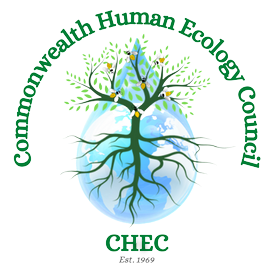"Mapping the Commonwealth one coral reef at a time" - World Oceans Day 2020 Report
Commonwealth Blue Charter Webinar ("Mapping the Commonwealth one coral reef at a time") reveals collaborative efforts to manage oceans in the face of climate change and restore and protect mangroves and coral reefs
On Monday 8 June 2020, the Commonwealth Secretary-General opened a webinar on “World Oceans Day 2020: Mapping the Commonwealth one coral reef at a time", emphasising the need to accelerate collaborative action across the Commonwealth to achieve sustainable ocean environments. The Maldives High Commissioner in London stressed that her nation was totally dependent on the ocean for fisheries and tourism which made climate change an existential threat for her people. Taholo Kami of the Action Group on Oceans and Climate Change discussed the issues affecting frontline states facing the impacts of climate change on weather and the oceans, arguing that climate change was for Fiji a 100% ocean problem.
Mangroves were discussed by the Sri Lankan leaders of the Action Group on Mangroves, Hasanthi Dissanayake and Sevvandi Jayakody. Much was being done at the national level to help inform people of the value and biodiversity of mangroves, while protection of marine and coastal environments was increasing. Dr. Jayakody described several restoration and environmental protection projects, especially the recent detailed mapping of the Kayankeri Marine Reserve.
Roger Beedon and David Souter told us that the Australian Great Barrier Reef is so extensive, with 3000 individual reefs and 900 islands that it needs careful, detailed mapping and regular surveillance to target areas requiring urgent action and to evaluate the status of keystone coral species. In coral ecosystems, some key jobs are only done by a few, or even a single, keystone species. The parrotfish on the Great Barrier Reef, for example, is the only one of thousands of reef fish species that regularly performs the task of scraping and cleaning inshore coral reefs. The central part of reef has been mapped in detail and can be seen on the Allen Coral Atlas. This atlas Ian aid to the work of the Global Coral Reef Monitoring Network which has issued regular reports on the status of the world’s coral reefs (another is due late in 2020).
Altogether this Webinar conveyed an excellent sense of the Commonwealth effectively in action, tackling severe problems and sharing information and technology between member nations. Much important, highly useful information is freely available as indicate be the websites listed below.
The global coral reef data and mapping are available at:
For mangroves the following links are helpful:
Global Mangrove Watch, 2018. “Global Mangrove Extent (v2.0).” www.globalmangrovewatch.org. Accessed through Global Forest Watch on 08/06/2020. www.globalforestwatch.org
Written by Ian Douglas
8 June 2020
Did you like this post about World Environment Day and the work that CHEC does? Please consider supporting us so we can continue the important work we do by becoming a member or donating today!
